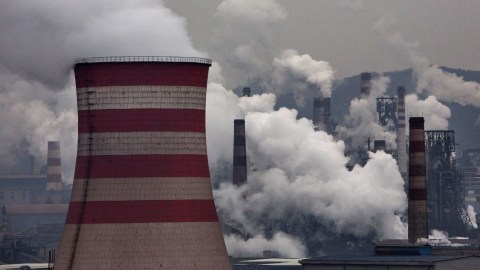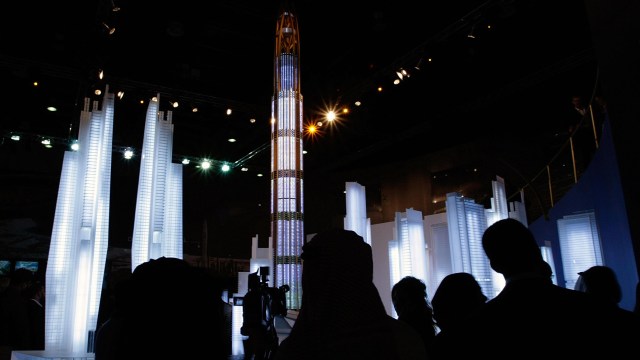Fossil Fuels Could Be History in 10 Years, Says Researcher

Fossil fuels could be phased-out in 10 years, according to a study published by a UK think tank. Our reliance on burning gas and coal to create energy has become dated in a time when fully electric cars drive on our streets and technology has advanced to the point where solar and wind energy can sustain our needs. It just needs to be built.
Professor Benjamin Sovacool, director of the Sussex Energy Group at the University of Sussex, published his analysis in the journal Energy Research & Social Science. In it Sovacool shows us how past societies have transitioned from one energy resource to another, and how this could inform how we can get to a zero-emission economy in 10 years.
Adopting new forms of energy is often a slow process. “Left to evolve by itself–as it has largely been in the past–this can indeed take many decades,” says Sovacool. “A lot of stars have to align all at once.” It took 96 and 160 years for coal to be adopted by most of Europe, and electricity took 47 to 69 years to go mainstream.
“The mainstream view of energy transitions as long, protracted affairs, often taking decades or centuries to occur, is not always supported by the evidence,” he said in a statement. But nothing helps speed up progress than a looming crisis.
“The idea is that that niche-innovations often face uphill struggles against existing systems,” he writes. “The ‘landscape’ refers to exogenous developments or shocks (e.g. economic crises, demographic changes, wars, ideological change, major environmental disruption like climate change) that create pressures on the regime, which in turn create windows of opportunity for the diffusion of niche-innovations.”
For a long time the Koch brothers and established utility companies have been waging a war against solar power, feeding climate change denial and funding “grassroots” organizations to fight the adoption of clean energy. But we are no longer hearing the predictions of concerned scientists, we are bearing witness to huge changes happening before our very eyes.
One of the Koch brothers has even acknowledged our climate is changing, recently, at an event hosted by The Wall Street Journal:
“Charles has said the climate is changing. So, the climate is changing,” Koch Industries’ Environmental, Health and Safety Director Sheryl Corrigan said. “I think he’s also said, and we believe, that humans have a part in that. I think what the real question is … what are we going to do about it?”
If my fondness for end-of-the-world movies has taught me anything, it’s that when humanity is faced with a common threat, we band together to find a way to survive.
There have been times when alternative forms of energy have been speedily adopted and they all show a common trend:
1) Strong government support 2) coupled with a shift in consumer preferences driven by incentives.
“Moving to a new, cleaner energy system would require significant shifts in technology, political regulations, tariffs and pricing regimes, and the behavior of users and adopters,” Sovacool says.
A group of researchers from Australia asserted incentives to purchase electric vehicles could lower car emissions by up to 47 percent. “We need to make it more financially appealing for consumers to consider purchasing electric vehicles,” Swinburne pro vice-chancellor, Ajay Kapoor, says. “This could include incentives such as exempting them from fringe benefits tax, providing rebates on their car registration and reduced parking costs in the CBD.”
***
Photo Credit: Kevin Frayer/Getty Images
Natalie has been writing professionally for about 6 years. After graduating from Ithaca College with a degree in Feature Writing, she snagged a job at PCMag.com where she had the opportunity to review all the latest consumer gadgets. Since then she has become a writer for hire, freelancing for various websites. In her spare time, you may find her riding her motorcycle, reading YA novels, hiking, or playing video games. Follow her on Twitter: @nat_schumaker





